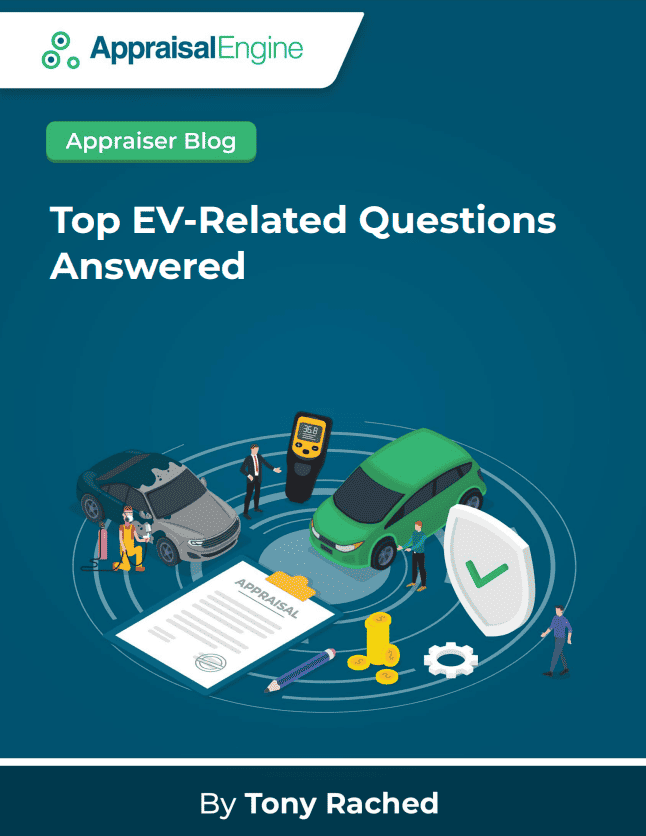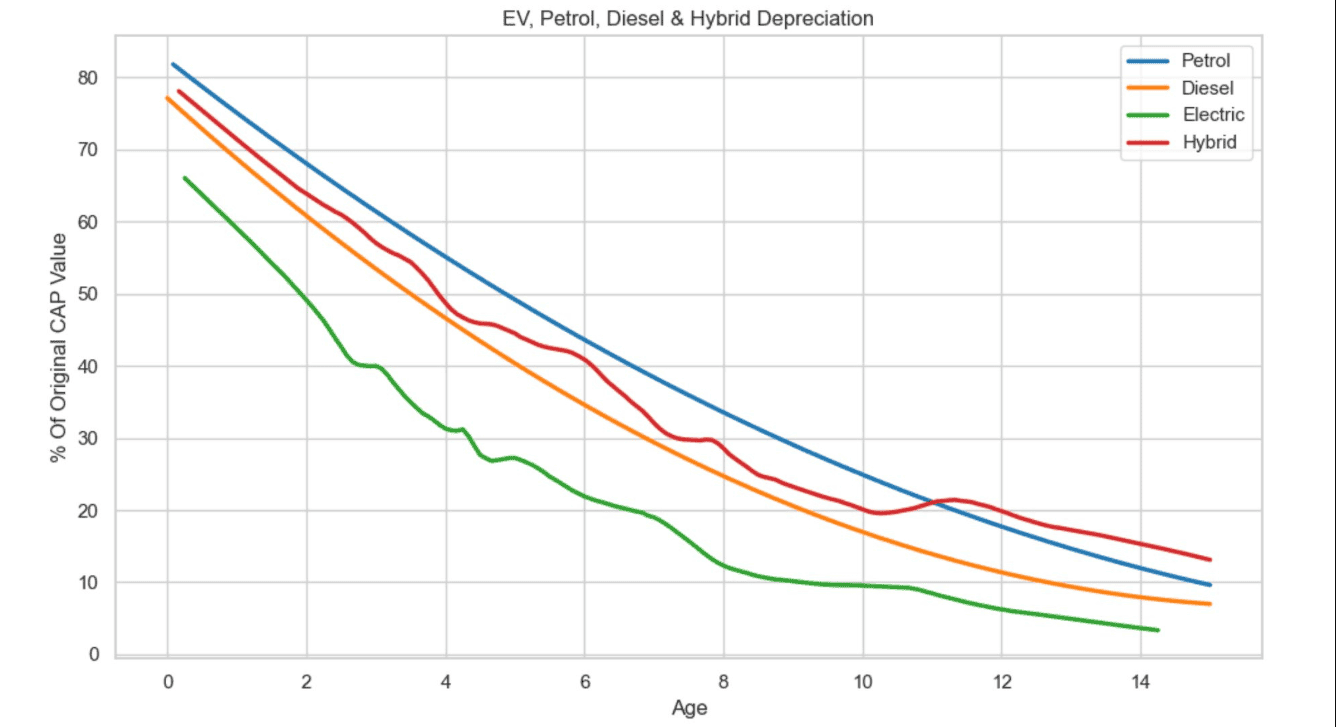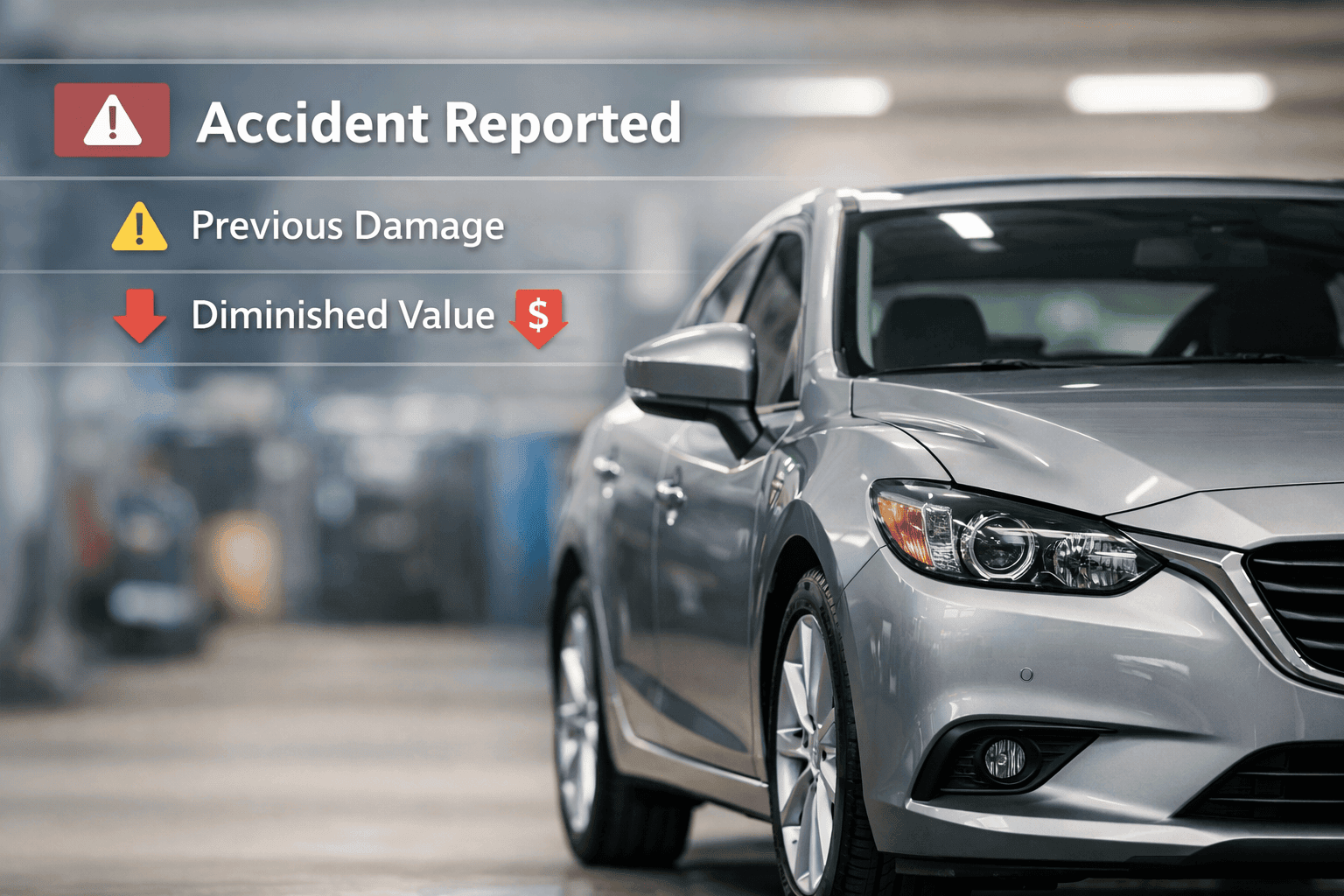Top EV-Related Questions Answered (PDF)
As electric vehicles (EVs) continue to gain popularity, people have many questions about their viability and functionality. We’ll address some of the most frequently searched EV-related queries and provide the answers you need.
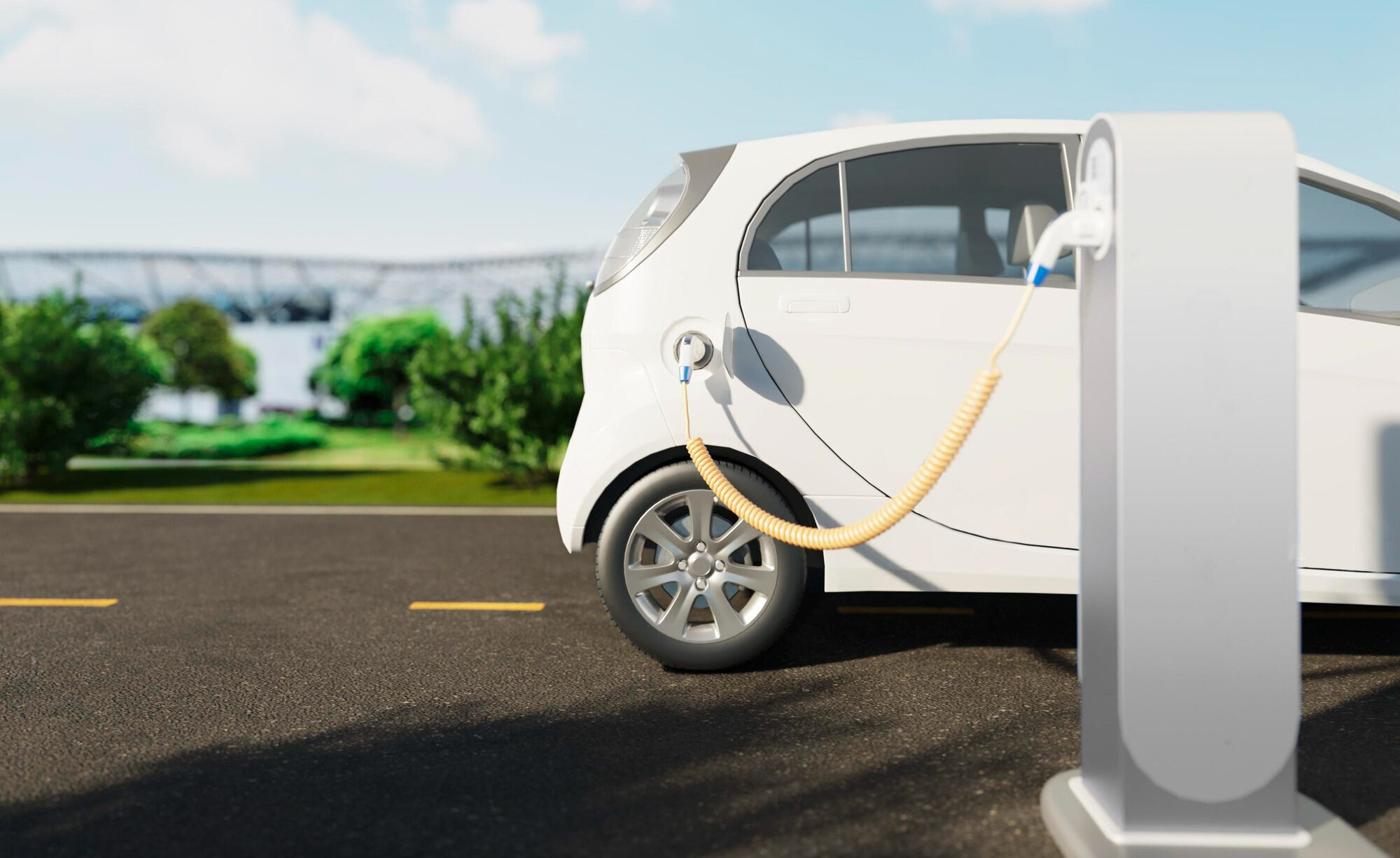
1. How Long Do EVs Last?
Many potential EV buyers wonder about the lifespan of these vehicles, particularly concerning the battery pack. The good news is that EVs are designed to be as durable as traditional vehicles. Car manufacturers engineer EV batteries to last as long as the car itself, with a minimum warranty of eight years and 100,000 miles mandated by the Federal government. This ensures that your EV’s battery is built to endure the rigors of daily use without needing replacement. While EV batteries do experience a gradual loss of capacity over time, it’s not as severe as the decline seen in mobile phone batteries. An EV battery is typically considered at the end of its life when it reaches around 70 percent of its original capacity. So, even after a decade or more, modern EVs with liquid-cooled batteries can still provide reliable performance with a slightly reduced range.
2. How Do I Charge at Home?
Charging your EV at home is convenient and straightforward. While you can use the standard 120-volt portable charging cord that comes with your EV, it’s highly recommended to install a Level 2 charging station, which operates at 240 volts. An electrician can install a dedicated circuit with a breaker in your electrical panel, and the charging station can be mounted in your garage or outside if you park in a driveway. It’s safe to charge your EV outdoors, even in inclement weather. The installation cost varies based on your home’s age and electrical setup, but for many homes built or rewired since the 1980s, there’s ample electrical capacity for an EV charger. This setup can fully recharge most EVs overnight. However, if you live in an apartment, you’ll need to explore other charging options before deciding on EV ownership.
3. What About Public Charging?
Public charging for EVs comes in two types: Level 2 stations and DC fast chargers. Level 2 chargers are similar to home chargers but are slower, and ideal for topping up during longer stops. On the other hand, DC fast chargers are significantly faster and are typically found along major travel routes, serving as the equivalent of gas stations for gasoline-powered vehicles.
Several major public charging networks, including ChargePoint, Electrify America, EVgo, and Shell Recharge, provide access to charging stations. Many EVs come equipped with navigation systems that can help you locate nearby charging stations, or you can use third-party apps like Plugshare, ABRP (A Better Route Planner), and Chargeway. While charging an EV during a long trip may require a bit more planning compared to refueling a traditional car, it’s becoming more convenient and efficient.
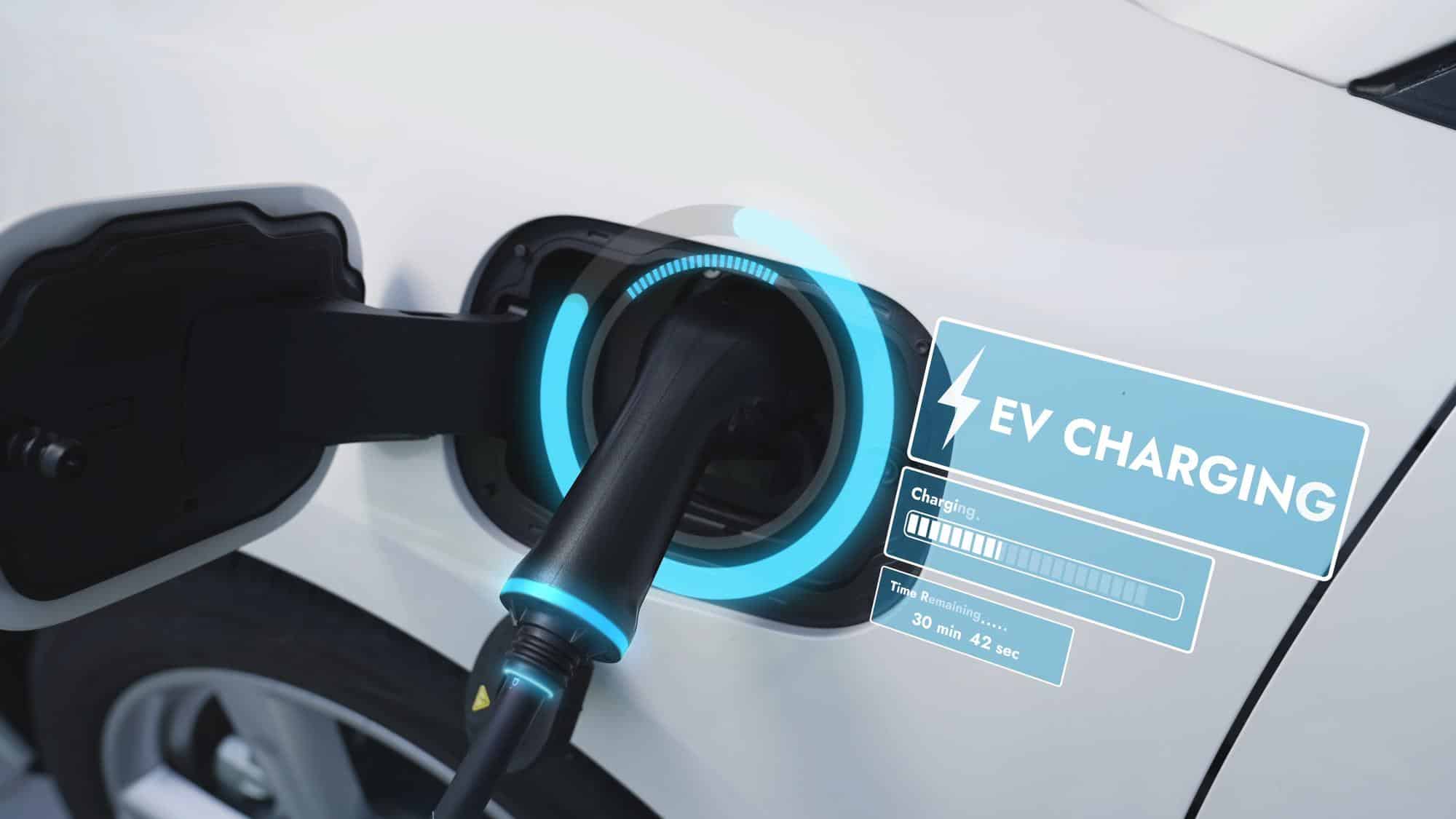
4. How Hard is it to Use a Public Charger?
Using a public EV charging station can be a straightforward experience, but it can vary depending on the station and your vehicle. Some stations allow you to plug in, initiate the charging process, and automatically bill your account, while others may require you to use a network’s mobile app, pay by credit card, or call a toll-free number to activate the charger. Interoperability between different charging station providers can still be a challenge, so having multiple charging network apps on your phone for convenience is a good idea. Prices for charging also vary by location and charging speed, with Level 2 charging typically costing less than fast charging.
5. Does it Cost a Lot to Charge an EV?
The cost of charging an EV depends on where and when you charge. Home electricity rates vary but are generally lower than public charging rates. On average, you can expect to spend around $5.30 to go 100 miles in a smaller EV and about $8.00 in a larger electric truck when charging at home. Public fast-charging stations usually charge higher rates, ranging from $8.00 to $25.00 for the same 100 miles. However, many EV manufacturers offer free fast-charging hours during the initial years of ownership, making road-trip recharging cost-effective.
6. Can I Get an EV Tax Credit?
Currently, only a subset of EVs qualifies for the federal tax credit. These vehicles must be manufactured in the U.S., Canada, or Mexico and use domestically produced batteries with specific mineral sourcing requirements. An alternative option for accessing the tax credit is leasing, as all battery-electric vehicles qualify if leased. Keep in mind that the tax credit goes to the leasing company in the case of a lease, so it’s essential to verify that you receive the full benefit from your lessor.
7. Are EVs Expensive to Maintain?
In general, EVs have fewer maintenance needs compared to traditional gasoline-powered vehicles. EVs don’t require oil changes, engine air filter replacements, or spark plug changes. While you won’t need regular dealer visits for these routine maintenance tasks, you’ll still need to replace worn items such as tires, wiper blades, brake pads, and cabin air filters.
8. Are EVs Different to Drive?
EVs offer a driving experience similar to that of traditional vehicles, but there are some differences to note. Unlike gasoline-powered vehicles, EVs are virtually silent, and many provide brisk acceleration. The most noticeable distinction is regenerative braking, which converts the motor into a generator when you release the accelerator pedal, slowing the car down. Some EVs allow you to adjust regenerative braking or even enable one-pedal driving, where strong regenerative braking takes you to a complete stop without frequent use of the brake pedal. While it may take some getting used to, many drivers find this feature convenient, especially in city traffic, and traditional hydraulic brakes are still available for more immediate stopping when needed.
Electric vehicles continue to evolve and become more accessible, making them a viable choice for an increasing number of drivers. With these answers to common EV questions, you can make an informed decision about whether an EV is right for you.
If you’re considering buying an EV, this article may help you make the best decision: What’s Coming in 2024 for the EV Market

